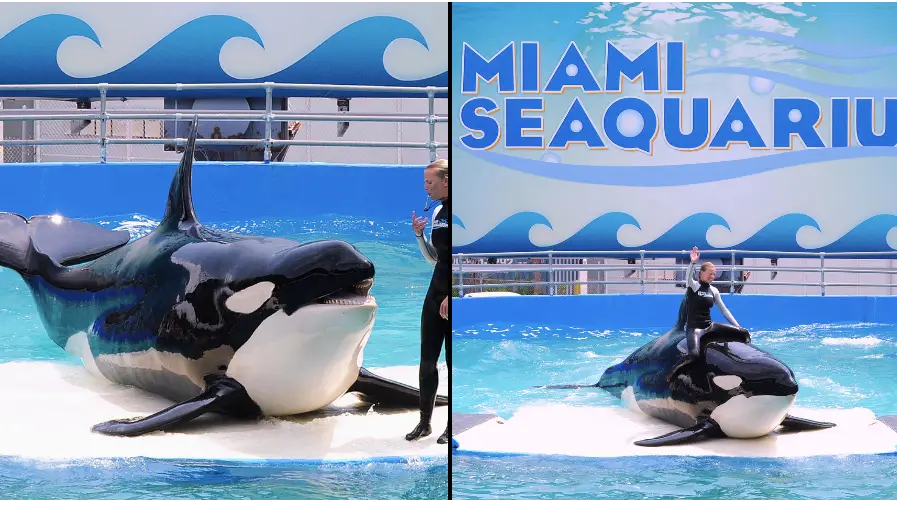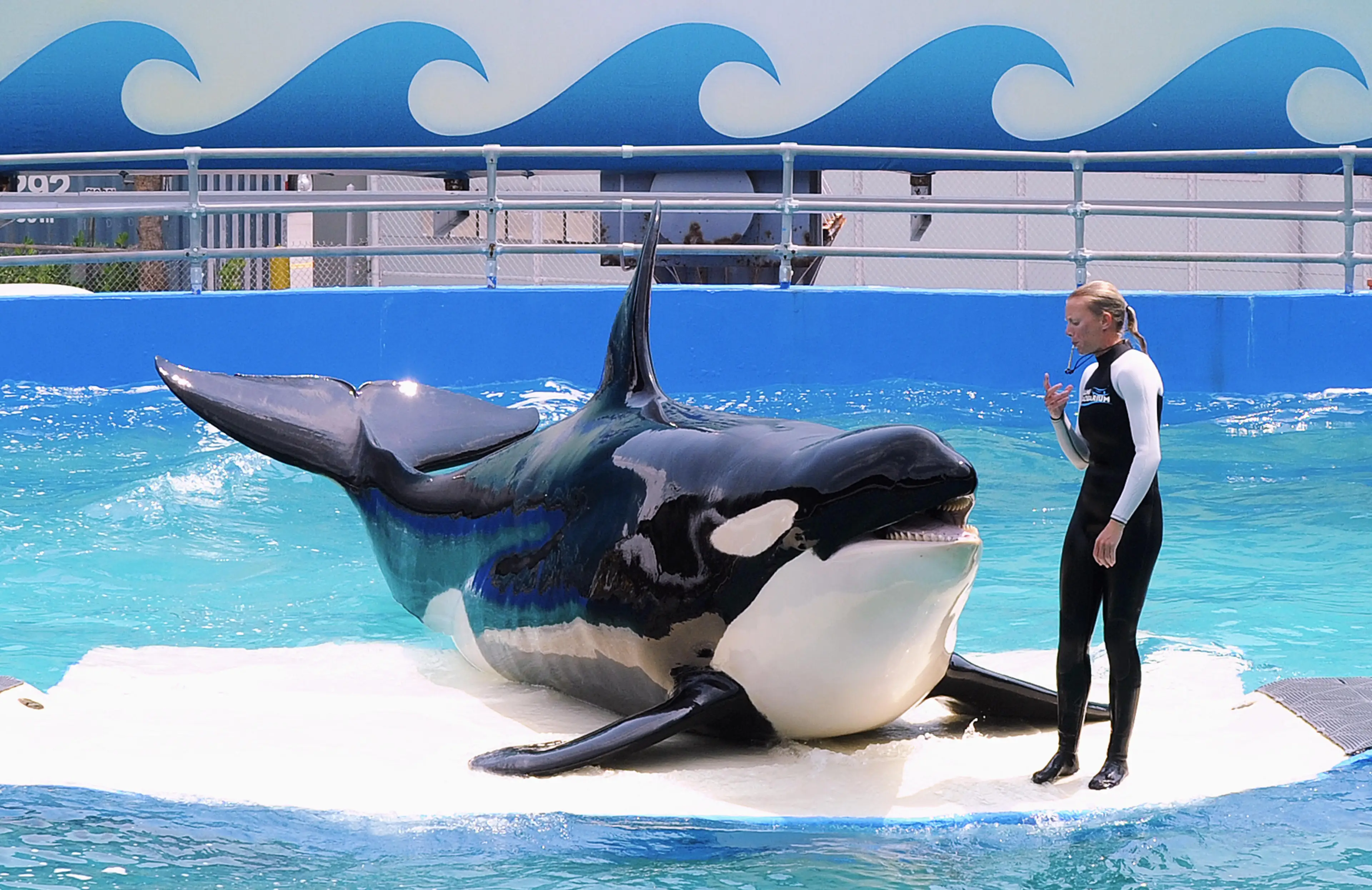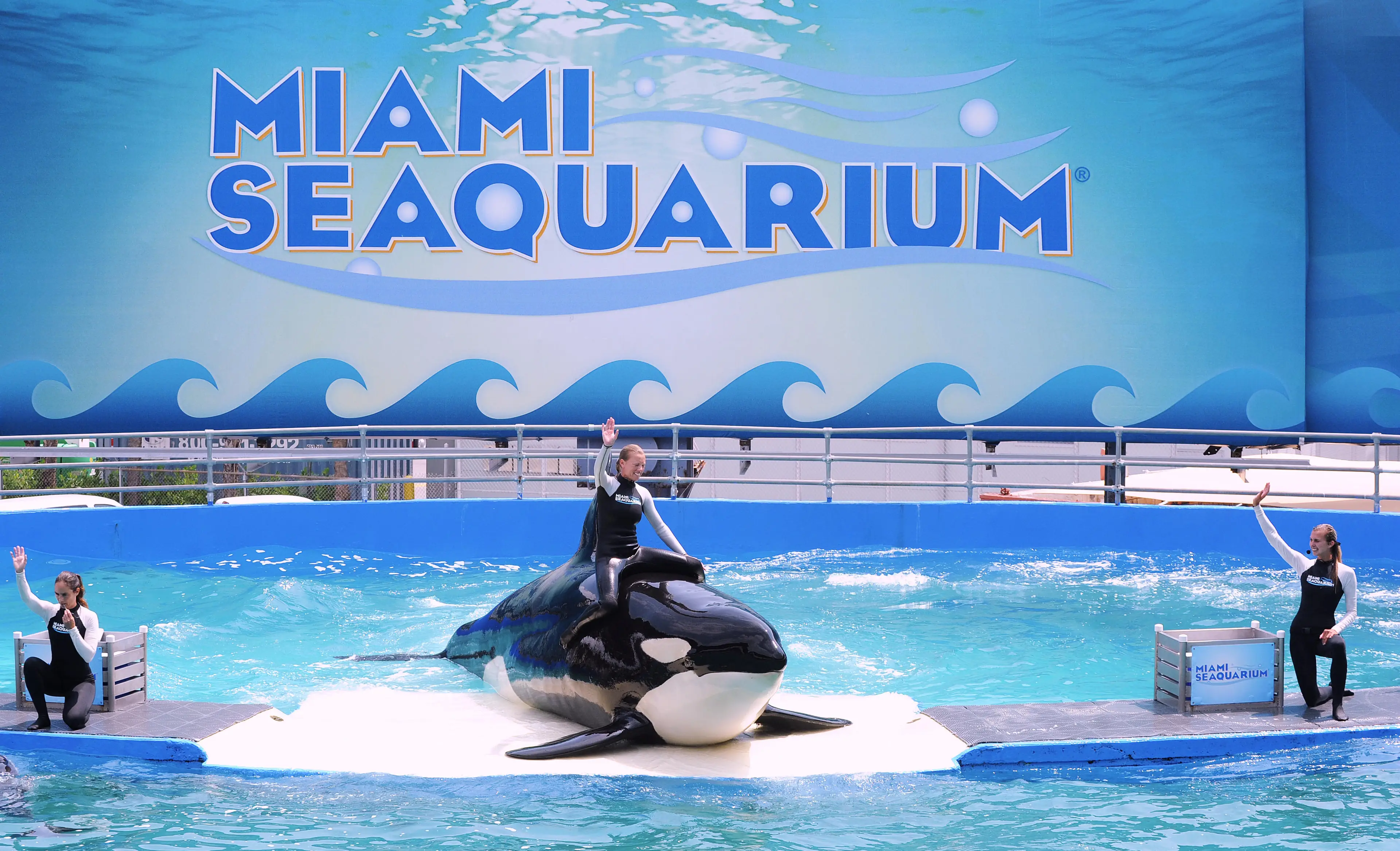
Animal rights activists are cheering the announcement of plans to return Lolita the orca, the killer whale held in captivity at Miami Seaquarium for over 50 years, to her 'home waters'.
The killer whale was captured from the Pacific Ocean in 1970 when she was four years old, and spent the next five decades performing at the Florida-based tourist attraction.
Now believed to be 57, she is the oldest killer whale in captivity and has spent her time in the smallest orca enclosure in North America.
Lolita, also known as Tokitae, has been in poor health in recent years due in part to the conditions of her captivity as she has suffered from a range of maladies including digestive issues from being fed rotten fish and skin infections from the water she was kept in.
Advert
Thankfully in June 2022 an independent assessment on Lolita's condition found that her health had improved.

MS Leisure last year announced that she would no longer be put on display and made to perform for audiences, but now the path is there for her to properly return to the sea.
Her future was announced in a news conference at the Miami Seaquarium yesterday (30 March) with the Florida non-profit group Friends of Lolita and NFL Indianapolis Colts owner Jim Irsay in attendance.
At the conference it was announced that the killer whale would be relocated back into the sea, though this was a process which could take 'the next 18 to 24 months'.
Members of Lolita's family pod are still alive in the Salish Sea, including a 90-year-old orca thought to be her mother.
Wild orcas have an estimated lifespan of between 50 and 90 years so efforts to return Lolita to her family will need to happen sooner rather than later if she is to be reunited with her mother again.

There are concerns that releasing the orca back into the wild could lead to her pod becoming infected with diseases she picked up at the Seaquarium, or that she will be very vulnerable to diseases in the sea.
Lolita is officially considered to be a 'southern resident orca', a type of killer whale which is in critical danger of extinction as there are only around 70 left alive, they were added to the endangered species list in 2005.
Once free, Lolita can hopefully enjoy the chance to be reunited with her pod and swim around in a body of water infinitely larger than the tank she was kept in during captivity at the Miami Seaquarium.